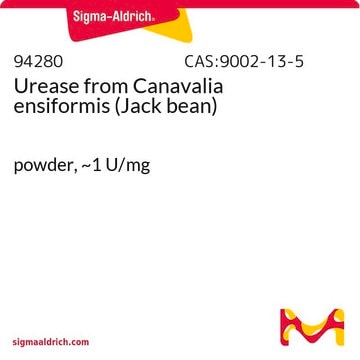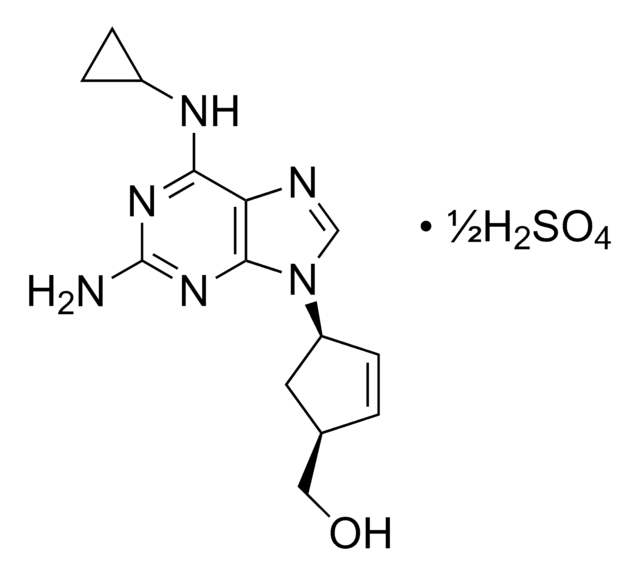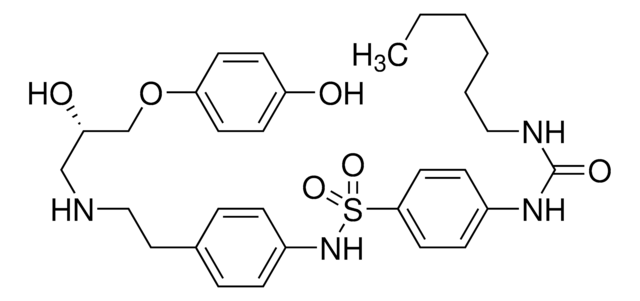A2169
3′-Azido-3′-deoxythymidine
≥98% (HPLC), powder, reverse transcriptase inhibitor
Sinónimos:
AZT, Azidothymidine, ZDV, Zidovudine
About This Item
Productos recomendados
product name
3′-Azido-3′-deoxythymidine, ≥98% (HPLC)
Quality Level
assay
≥98% (HPLC)
form
powder
mp
113-115 °C (lit.)
solubility
H2O: 50 mg/mL
storage temp.
−20°C
SMILES string
CC1=CN([C@H]2C[C@H](N=[N+]=[N-])[C@@H](CO)O2)C(=O)NC1=O
InChI
1S/C10H13N5O4/c1-5-3-15(10(18)12-9(5)17)8-2-6(13-14-11)7(4-16)19-8/h3,6-8,16H,2,4H2,1H3,(H,12,17,18)/t6-,7+,8+/m0/s1
Inchi Key
HBOMLICNUCNMMY-XLPZGREQSA-N
Gene Information
human ... HIVE1(3095)
mouse ... Slc29a1(63959)
¿Está buscando productos similares? Visita Guía de comparación de productos
Application
Biochem/physiol Actions
Features and Benefits
signalword
Warning
hcodes
Hazard Classifications
Carc. 2 - Muta. 2
Storage Class
11 - Combustible Solids
wgk_germany
WGK 1
flash_point_f
Not applicable
flash_point_c
Not applicable
ppe
Eyeshields, Gloves, type P3 (EN 143) respirator cartridges
Certificados de análisis (COA)
Busque Certificados de análisis (COA) introduciendo el número de lote del producto. Los números de lote se encuentran en la etiqueta del producto después de las palabras «Lot» o «Batch»
¿Ya tiene este producto?
Encuentre la documentación para los productos que ha comprado recientemente en la Biblioteca de documentos.
Los clientes también vieron
Artículos
Modulation of homology-directed repair (HDR) within the context of CRISPR-genome editing has led to the identification of small molecules that enhance CRISPR-mediated HDR efficiency in various cell types.
Modulation of homology-directed repair (HDR) within the context of CRISPR-genome editing has led to the identification of small molecules that enhance CRISPR-mediated HDR efficiency in various cell types.
Modulation of homology-directed repair (HDR) within the context of CRISPR-genome editing has led to the identification of small molecules that enhance CRISPR-mediated HDR efficiency in various cell types.
Modulation of homology-directed repair (HDR) within the context of CRISPR-genome editing has led to the identification of small molecules that enhance CRISPR-mediated HDR efficiency in various cell types.
Nuestro equipo de científicos tiene experiencia en todas las áreas de investigación: Ciencias de la vida, Ciencia de los materiales, Síntesis química, Cromatografía, Analítica y muchas otras.
Póngase en contacto con el Servicio técnico











